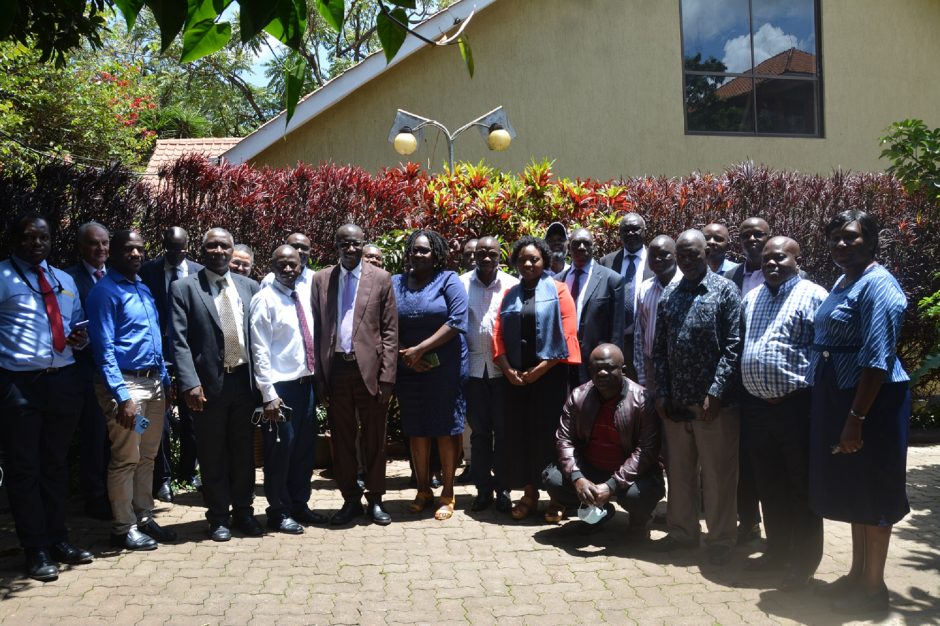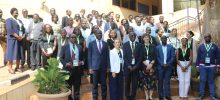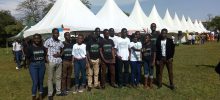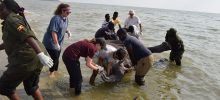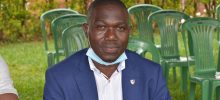Dissemination and stakeholder engagements on Paratuberculosis Research findings held
The College of Veterinary Medicine, Animal Resources and Biosecurity (COVAB) conducted a dissemination and stakeholder consultation workshop following a successful completion of phase I of the research on Paratuberculosis funded by the German Research Foundation (DFG).
The study was conducted in partnership with the Universities of Goettingen and Leipzig, in Germany and partners from the University of Khartoum and Ibn Sina Specialised Hospital in Sudan from 2018 till now.
The dissemination workshop held Monday 26th September 2022 at Piato Restaurant in Kampala was also a forum where a number of stakeholders came together as one of the initial preparatory activities for the upcoming successor phase II research to be conducted in the coming 3-year period. The project was a trigger for additional funds from the European Union and Germany on COVID19 and Antimicrobial Resistance in collaboration with other six African countries namely, DRC, Senegal, Ethiopia, Ghana, Nigeria and Madagascar.
According to CoVAB’s Dr. Okuni Julius Boniface, one of the Principal Investigators, the new collaboration involves Makerere College of Health Sciences (MakCHS) and now covers One Health issues including COVID-19 and Antimicrobial Resistance in Animals and Humans.
He said the meeting was convened to inform the stakeholders in the broader partnership about the objectives and to share the results for the collaboration spanning the last four years. He said the engagement was necessary in order to create a rapport for future engagements. ‘We are desirous of engaging with fellow researchers, policy makers, government agencies in order to make a synergistic contribution towards solutions to problems affecting Human welfare using a One Health Approach’, he stated in a statement about the engagement.
He noted that all stakeholders were willing to collaborate and to play a leading role in propelling the research agenda on Anti-Microbial resistance and Neglected Tropical Diseases.
The partnership is aimed at building capacity through training of the next generation of researchers, which will also ensure sustainability of the outputs realized. “I noted that there is no sustainability after close of projects such as lack of proper use of equipment acquired in the process of implementation” noted Dr. Ahmed Abd El Wahed from Leipzig University. Prof. Uwe Truyen, the Director of the Institute of Animal Hygiene and Veterinary Public Health at the University of Leipzig in Germany said “the ongoing collaboration covers areas of Research, Capacity Building, networking, engagement and knowledge transfer with African Countries taking lead”.
The Principal of the College of Health Sciences Makerere University, Prof. Damalie Nakanjako extended her appreciation to all the stakeholders for their willingness to handle the challenge of infectious diseases in a multi sectoral manner. She said the success of the program and the network will be realized only if they came up with a database that can be used by all other African Countries as a reference.
The Principal of the College of Veterinary Medicine, Animal Resources and Biosecurity, Prof. Frank Nobert Mwiine, while making his remarks at the close of the meeting noted that the ongoing research was a manifestation of the objective of the University, which is being research led. He said although the majority of the students were undergraduate, the future of the University is targeting having more postgraduate students. He commended the German-funded project that is already supporting a Ph.D student. He congratulated the team for winning project support amidst the high competitiveness of accessing project funds.
On another note, Prof. Mwiine extended his appreciation to Prof. Ojok Lonzy who taught and mentored a number of staff at the College for his humility and sense of humor with which he passed on knowledge to the students. He also used the opportunity to thank the staff in his college for the good work they were doing by putting Makerere University high in its research agenda.
Also appreciated at the dissemination meeting was Assoc. Prof. Jessica Nakavuma who was hailed for her role of teaching Microbiology across Colleges for over thirty years.
Other speakers included Co Principal Investigator Prof. Ejobi who emphasized the need for networking which was essential in as far as informing stakeholders was concerned.
One of the beneficiaries of the project, Ph.D student Judah Ssekitoleko took off time to explain his experience undertaking his studies in Uganda on a Germany supported project. He said there was big contrast working on research here locally with instances of challenges like power fluctuations, the use of sophisticated equipment and lack of adequate capacity to use them. He appreciated the advantage of working from home that reduced the pressures of missing family and network.


